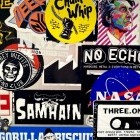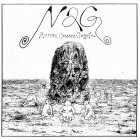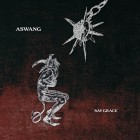One of my favorite music book authors of the last few years has been Jim Ruland. Both his Do What You Want with Bad Religion, and My Damage with Keith Morris are heavily recommended reads for any punk geek out there.
Jim's latest tome is Corporate Rock Sucks: The Rise and Fall of SST Records, and as expected our man digs deep into the history at hand, interviewing key players in the iconic label's story. I read a galley of the book it over a vacation with my wife and couldn't put it down.
Black Flag guitarist Greg Ginn started the label in the late '70s, eventually releasing titles by a wide-range of influential bands including Minutemen, Soundgarden, Hüsker Dü, Bad Brains, Sonic Youth, and Dinosaur Jr. That's incredible stuff right there.
I chatted with Jim about the forthcoming book, SST's business missteps, and whether or not he's heard any feedback from Mr. Ginn.
I went into this book thinking to myself, "I know so much about SST and its history already, but let's see..." Man, was I wrong! I based this preconceived idea on the fact that I have read books like Michael Azerrad's This Band Can Be Your Life and Bob Mould's See a Little Light: The Trail of Rage and Melody. I imagine there were many times during the interview/writing process that you felt the same way I did.
Absolutely. It’s one thing to read Joe Carducci’s book, Enter Naomi, and quite another to be able to ask him questions directly. I think being familiar with the work of people like Azerrad, Carducci, and others helped me shine a light in areas that hadn’t been covered before.
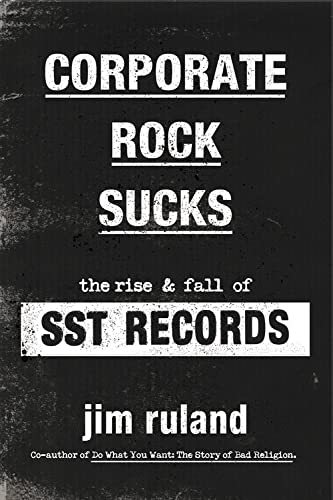
Your years of writing for Flipside and Razorcake, plus your previous books within that space, set a strong credibility tone, but how tough was it to get some of the people to agree to chat with you about Ginn and SST? There are folks featured in there that I've never seen interviewed anywhere else before.
It was both harder and easier than I thought it would be. A few people declined to speak with me for legal reasons. They didn’t want to go on record because it might kick off another round of legal entanglements. On the other hand, this book was a pandemic project and people who would usually be busy on the road or at their jobs were sitting at home with nothing better to do.
When you sell a book, the publisher wants to see big names splashed all over the page. But fans have heard all those sound bites before in a million documentaries and they don’t want revisionist history. I intentionally focused on people who haven’t shared their story before: SST employees, photographers, and a ton of drummers.
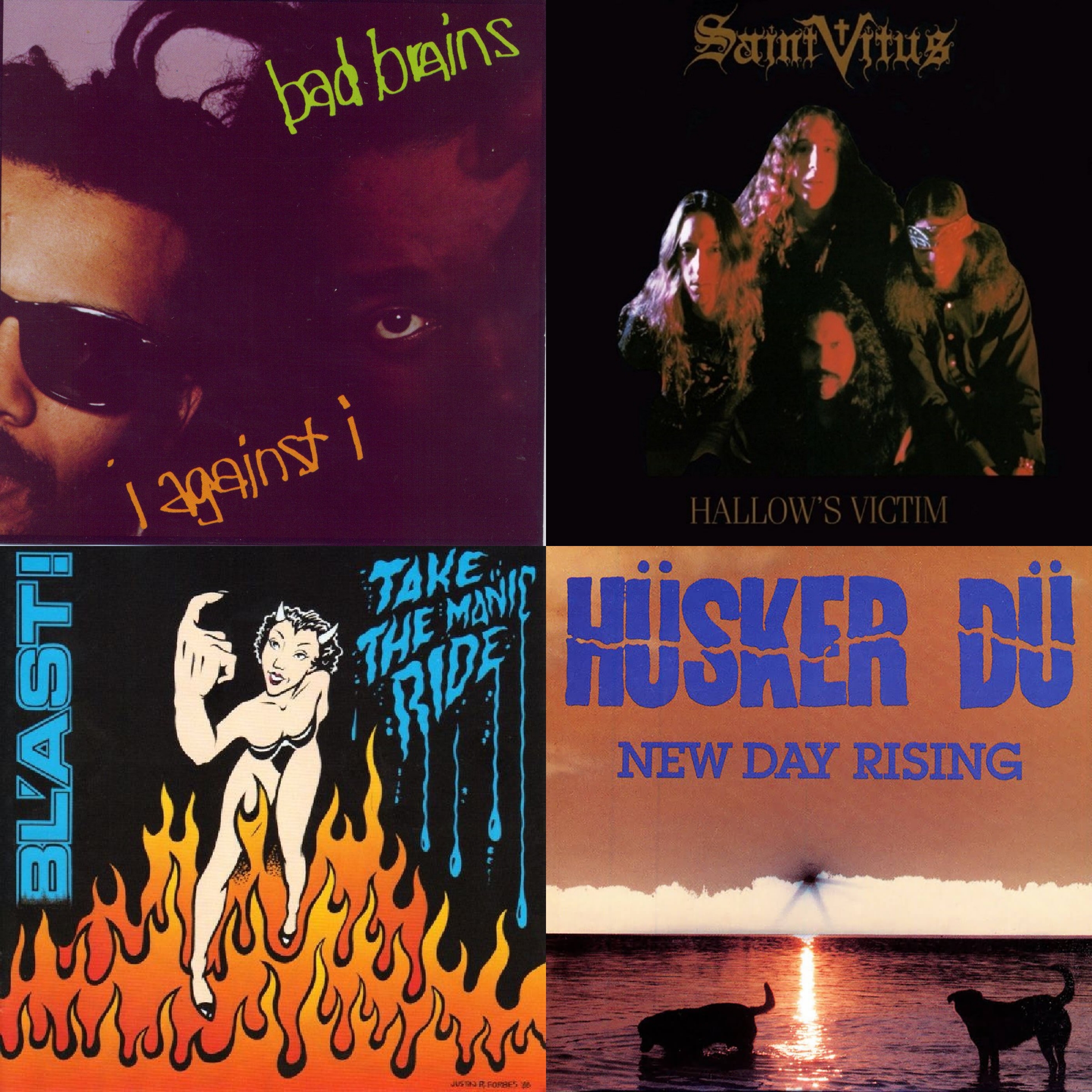
Reading the book reminded me how diverse SST was in terms of the catalog they built up. The fact that you had everyone from Saint Vitus to Hüsker Dü to Screaming Trees all release records through the label is a testament to that.
The breadth and depth of the catalog is the thing about SST that everyone loses sight of, myself included. When a label has a breakout record with a band the instinct is to do more of the same. SST wasn’t like that. It was constantly changing, which made the story really interesting.
If SST had cranked out 300+ hardcore records I would have burned out on the project. Before this book, if someone said to me “SST isn’t a punk label” I would have thought they were high. Now I agree. There isn’t a single genre or style of music that typifies the SST listening experience.
To paraphrase Walt Whitman, SST contains multitudes!

There were so many times where the label dropped the ball, so to speak, on the business end of things. Do you feel that if that would have been handled differently back then, SST could have had their "Sub Pop moment" in terms of a mainstream breakthrough?
Without a doubt. SST missed out on two of the biggest indie releases of the ‘80s and ‘90s: Sonic Youth’s Daydream Nation and Nirvana’s Bleach. It’s hard to say what SST would have done with that capital. Release more records? Hire more lawyers? It could have gone either way.
Have you heard anything from Greg Ginn since the book has been done? Does it matter? Maybe someone else close to him has said something to you, either good or bad?
No, and I don’t expect to. I’m not part of the SST’s inner circle. I don’t have an axe to grind or a score to settle. I don’t get into Ginn’s personal life or anything like that. I’m just trying to tell the history of the label without getting sucked into the negativity that surrounds some of the personalities at the heart of the story.
Which SST release—album or EP—do you feel deserves some more love?
So many! I could pick one from every era but I’m going to go with The Stains. Here’s a band that influenced Back Flag and has been all but written out of LA punk history. I mean Ginn used to go to Robert Becerra’s mother’s house in Boyle Heights and jam with him—not the other way around. SST sat on the record for over a year and by time it finally came out the band had finally broke up.
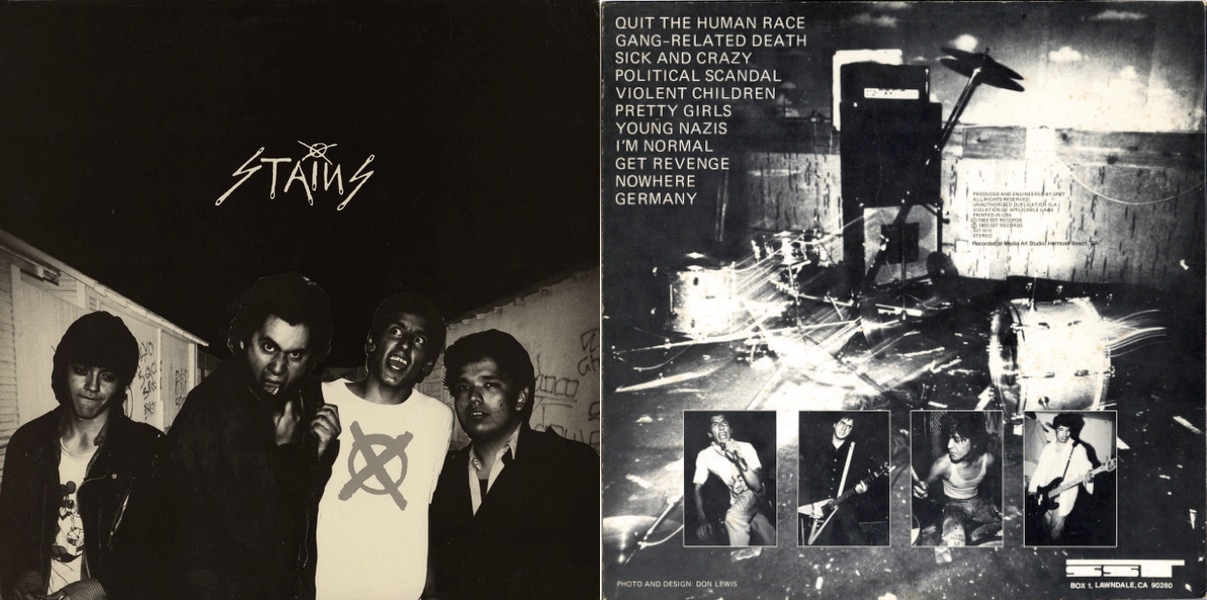
That’s the story of punk rock, right? Fun while it lasted but it seldom lasted for long.
***
Corporate Rock Sucks: The Rise and Fall of SST Records will be out on April 1th via Hachette Books. Hit this link for the pre-order with some cool bonus materials.
***
Help Support What No Echo Does via Patreon:
***
Tagged: bad brains, black flag, book, descendents, husker du






